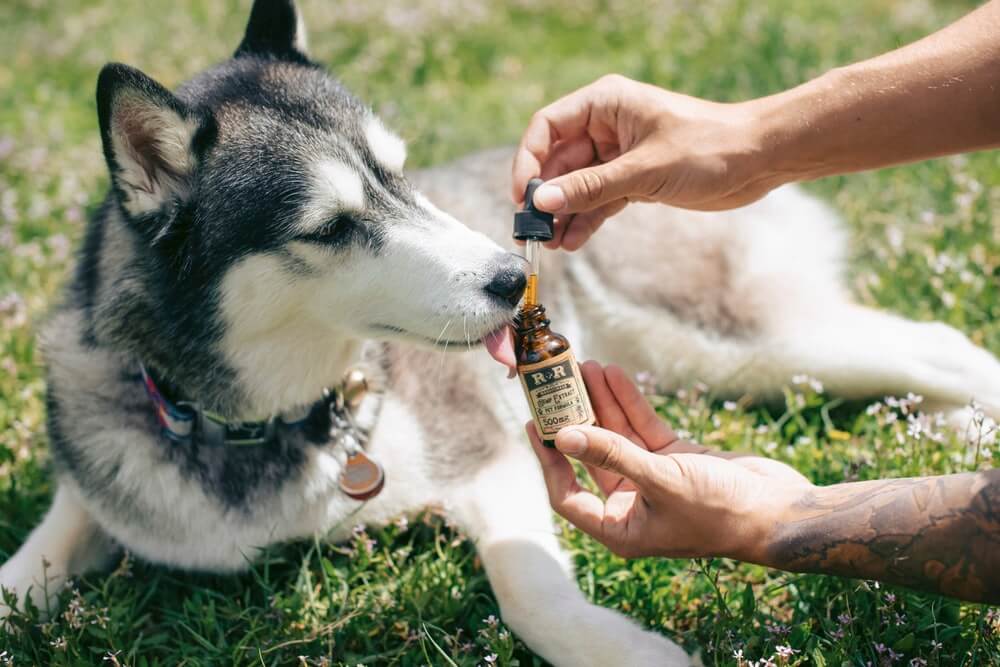
What Can I Give My Dog for Pain Relief?
We all remember seeing our pet friends romping through nature as if they were invincible. Some of our favorite pet memories might involve morning walks and carefree playtime. When your dog shows symptoms of pain, you want to get them back on all fours as quickly as possible.
But what’s the best way to ease dog pain? Is it safe to give them over-the-counter medications like aspirin for pain management? The short answer is no.
Changing your dog's diet can help reduce pain. Learn how Wild Earth dog food can help.
Signs your dog is in pain could include sensitivity to being touched and changes in behavior such as increased aggressiveness or submissiveness, depending on the pooch. If you notice your dog is showing signs of pain or limping, your first course of action should be to contact your veterinarian.
Can I give my dog Ibuprofen or Acetaminophen?
Over-the-counter (OTC) pain relievers can endanger your dog's health. Unless under the explicit direction of a trusted veterinarian, dogs should not be given human medications like ibuprofen (Advil), acetaminophen (Tylenol), or aspirin.
Skip the medicine cabinet for pet pain relief. This article will detail the risks and side effects involved with giving your dog OTCs, and safe options to alleviate your dog's pain These include treatments such as natural remedies and prescribed pain meds for dogs from your vet. Read on to learn how you can help your pup feel better in no time.
One in four dogs in the US is diagnosed with some form of arthritis. Learn how Wild Earth dog supplements help support healthy joint function.

NSAIDs and Your Dog
The most common types of OTC pain relievers are known as non-steroidal anti-inflammatory drugs or NSAIDs. Dr. Jennifer Coats of PetMD describes NSAIDs as drugs that inhibit an enzyme called cyclooxygenase, which "produces hormone-like substances called prostaglandins that promote inflammation, fever, and pain." Examples of OTC NSAIDs include baby aspirin, ibuprofen, and naproxen.
Can I Give My Dog Aspirin or Other OTC NSAIDs?
Are human pain meds like aspirin safe for dogs? While it's tempting to raid your medicine cabinet for a pup in pain, you should not give your dog aspirin.
Whatever is causing your dog pain, don't put them in unnecessary risk. If given human NSAID pain medications, dogs can develop issues like:
- Gastrointestinal ulcers
- Vomiting
- Diarrhea
- Bleeding disorders
- Kidney failure
- Liver damage
- Loss of appetite
- Skin changes like redness or scabs
These are the dangerous side effects your dog could suffer from if given human painkillers. So how are you supposed to treat your dog's pain? The good news is, there are many FDA-approved NSAIDs specifically for pets that are safe to administer under your veterinarian's instruction.
Safe Non-Steroidal Anti-Inflammatory Drugs for Your Dog
What can I give my dog for pain that is safe? A veterinarian will prescribe safe, pet-specific NSAIDs for your dog's pain and resulting inflammation. Veterinary NSAIDs approved by the Federal Drug Administration for dogs include:
- Rimadyl (carprofen)
- Metacam (Meloxicam)
- Deramaxx (deracoxib)
- Firocoxib (Previcox)
For a full list of FDA-approved pain relievers for dogs, visit their website. Should you need to seek out medication to relieve your dog’s pain from arthritis, surgery recovery, joint pain, or chronic pain, talk to your veterinarian. If your dog shows any sign of the above side effects, stop giving them the medication immediately.
Veterinarians are the best point-of-contact for developing an appropriate treatment plan for your pooch. Do not increase the dose, the frequency, or the length of time you use the drug unless first talking with your vet.
Natural Remedies for Dog Pain
If your dog has not had an operation and simply needs something for general pain management, there are effective natural alternatives to traditional pain medications. Double-check with your veterinarian regarding what supplements you are thinking of adding to your dog's diet first.
If you have an older dog struggling with joint pain and arthritis, glucosamine supplements are essential for pain relief and increased mobility. Glucosamine helps create molecules that form the cartilage of your dog’s joints. As dog's age, their bodies produce less glucosamine, resulting in stiff and painful joints, hence the need for supplementation later in life. These supplements can be found online, in pet stores, and in most grocery stores.
Pain, Inflammation and your Dog's Food
Did you know that pain and inflammation are often linked? Inflammation in some diseases, like arthritis which both we and our dogs can get, can result from a malfunctioning of our immune system which triggers an inflammatory response often causing pain for us and our dogs when we move our joints.
What we feed our dogs can be an important part of fighting that inflammation, just as anti-inflammatory foods are important for us, they’re also important for our dogs.
A few dog foods, like Wild Earth are crafted not just to optimize complete nutrition for our dogs but are also full of anti-inflammatory superfoods like blueberries, cranberries, rosemary and spinach.
Try Wild Earth Dog Food!Particularly for senior dogs with joint mobility issues, dogs fed Wild Earth Dog Food saw a 26% improvement in joint health. Many pet parents are turning to better plant-based nutrition to reduce inflammation and pain in their beloved dogs.
Curious About CBD Oil For Dog Pain?
A more recent effective and natural solution for dogs with pain and arthritis is cannabidiol (CBD oil). In 2018, researchers at Cornell University tested CBD oil's effectiveness for relieving arthritis pain in dogs They found that 80% of the dogs taking the CBD oil showed “significant improvement in pain levels and quality of life” without discernible side effects.
According to PetMD, CBD has no life-threatening side effects and does not damage the kidney, liver, or GI tract, while NSAIDs can have these effects. CBD is a non-psychoactive component of the marijuana plant and does not make dogs "high" or sedated.
CBD oil can be administered straight from the dropper or applied to your dog's food. CBD for pets even comes in the form of chewable, honey, peanut butter, and dog treats.
CBD is an increasingly popular natural remedy for dog pain. There are a variety of CBD pet products on the market, but not all are created equal. Do some research into what brands, tinctures, and dosage combination would work best for your dog. Talk to your veterinarian about any suggestions they may have.
Physical Therapy for Dog Pain
Other than natural supplements, doggie physical therapy is an effective way to alleviate your dog's pain. There are a variety of physical therapies that can help. Consult your veterinarian to see which course of action is best for your pup's particular case.
Types of therapy include acupuncture, massage, strategic stretches, and range-of-motion exercises. There is even laser therapy for dogs. All therapy types are worth looking into, and different methods will make sense for different situations but do not attempt to add such exercises on your own without the guidance of a professional veterinary physical therapist.
Physical rehabilitation requires specific treatment protocols to ensure the safety, health, and overall quality of your dog’s life. Follow your veterinary specialist’s instructions to the letter.
Helping Your Dog Through Pain
It's tough to see your fur-baby suffer. Regardless of where your dog's pain comes from, consult your veterinarian before giving them medication or beginning a physical therapy plan. Veterinary professionals are the best reference to guide you to the medication and supplements that will best help your dog in a given situation.
As a reminder, though it may be instinctual to see what you have in that medicine cabinet, do not give your dog human pain killers. Only give your dog pet-specific NSAIDs prescribed by your vet. As long as you have a trusted veterinarian you can contact about your dog's health, you are on the right path to alleviating their pain and making them as comfortable as possible.
Hip & Joint Supplements for Dog Pain
We want to support keeping your dogs running, jumping, and playing—no matter their age, size, or breed. That's why we developed our supplements to support joint health. Find out about Wild Earth's Dog Supplements.





























